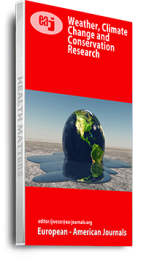This paper focuses on treated wastewater in addressing the impacts of climate change on water sources, especially in arid and semi-arid regions that suffer anyway from water scarcity. Jordan with its severe water situation is expected to be defenseless to climate change effects taking into account the unbalance between available water resources and urgent demands. The paper helps in assessing treated wastewater as an effective adaptation measure to cope with water scarcity in Jordan and to consider it as an integral part of the national water budget. Wastewater is a promising alternative to cover the shortage in water supply in regions where severe drought is an anticipated effect of climate change, also to provide water of good quality to secure drinking water for the population, at the same time to increase the efficiency of the uses of the available water sources. Jordan has 36 wastewater treatment plants in operation scattered throughout the country and producing about 430,000 CM/day of reclaimed wastewater. According to the reports Ministry of Water and Irrigation, more than 85 percent of this water is of in full compliance to the quality required for irrigation of field crops and forest trees according to JS 893/2006.
Keywords: Water Resources, arid and semi-arid regions., climate change challenges, treated wastewater

